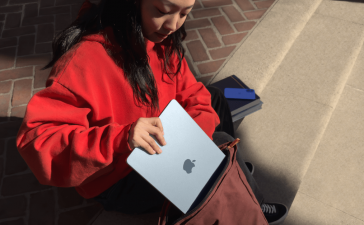China’s domestic brands are racing ahead to capture a larger share in the country’s fiercely competitive smartphone market, edging out Apple from among the top five vendors.
The Chinese smartphone market as a whole grew by 10 per cent year-on-year, with over 70 million units shipped in Q2.
Apple dropped from the third-largest smartphone vendor in the second quarter of last year, to the sixth position over the similar quarter this year.
iPhone shipments in China declined by 6.7 per cent year-on-year in the second quarter of 2024, according to research firm Canalys.
Meanwhile, Chinese companies such as Vivo, Oppo, Honor, Xiaomi and Huawei have seen significant growth to challenge Apple’s market share.
“It is the first quarter in history that domestic vendors dominate all the top five positions,” said Lucas Zhong, research analyst at Canalys.
Among the Chinese brands, Vivo led the market with a 19 per cent share (13.1 million units shipped), with the “618” e-commerce festival reported to have boosted its sales in the April-June quarter.
Oppo held onto second place with 11.3 million units, and saw the launch of its new Reno 12 series.
Huawei spinoff Honor came in third with 10.7 million units shipped, with its Magic V3 which uses GenerativeAI being a model that has been popular in the local market.
Huawei came fourth with 15 per cent market share and 10.6 million shipment units — with the brand’s popularity soaring after it launched its Mate 60 smartphone last year.
Apple’s shipments meanwhile fell to 9.7 million units, giving it a reduced market share of 14 per cent.
Despite offering deep discounts of up to 23 per cent, the company still reportedly struggled to hold onto its dominant position.

Apple Jing’an store in China (Image: Sourced from Apple Newsroom)
Some of the factors that have been attributed to the rise in market share among domestic brands range from them benefiting from localised supply chains and also a growing sense of brand loyalty among Chinese consumers.
Apple’s reported trouble within the China market began a few months ago since its shipments dropped 25 per cent year-on-year to 10 million units in the first quarter of 2024.
Zhong suggests that Apple needs to localise its “Apple Intelligence” platform for China within the next year to claw back some of its lost ground.
The upcoming iPhone 16 lineup will also give Apple a chance to boost demand and improve its market position.











